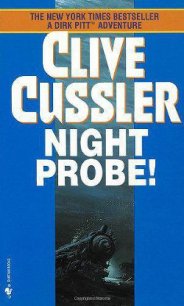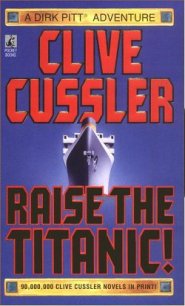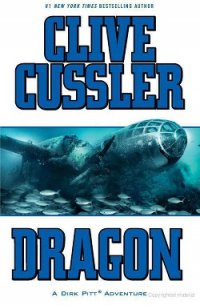Plague Ship - Cussler Clive (полные книги .TXT) 📗
Max’s response was to slam the crown of his balding head into Kovac’s nose. The restraints binding him to the chair prevented him from breaking the bone, but he was satisfied with the jet of blood that flew from one nostril until the Serb staunched it with his fingers.
The look Kovac shot Hanley was one of pure animal rage. Max had known the strike was going to earn him the beating of his life, but, as Kovac glared, smears of blood like war paint on his face, Max felt certain he had gone too far.
The blows came in a flurry. There was no pattern, no aim. It was an explosive reaction, the instinct of the primeval hindbrain toward a perceived threat. Max took shots to the face, chest, stomach, shoulders, and groin in a rain of punches and kicks that seemed inexhaustible. The strikes came so fast, he felt certain more than one person was hitting him, but, as his eyes rolled back so that only the whites showed, he could tell the punishment was being meted out by Kovac alone.
Two full minutes passed after Max had slumped over in his chair, his face a pulped mass, until one of the guards finally stepped in to restrain the Serb butcher. Kovac turned his murderous gaze at the interruption and the guard hastily backed away, but the distraction was enough to cool his rage.
He looked contemptuously at Hanley’s unconscious form, his chest heaving with exertion and adrenaline.
Kovac snapped his wrists, making the taxed joints pop audibly and sending droplets of their mingled blood to the floor. Reaching over, he pushed up Max’s right eyelid. All that showed was a veined white orb.
Kovac turned to the guards. “Come back and check on him in a couple of hours. If he doesn’t break next time, we will have his son flown here from Corinth and see how much of a beating he can watch the kid take before he tells us what we want to know.”
He strode out the open door. The two guards waited a moment and then followed, closing the heavy door behind them. They never looked back or felt movement in the room, because it was the last thing they would have expected.
Watching them leave through nearly closed eyes, Max was in motion the instant their backs turned. All throughout the terrible pounding, he had worked his body back and forth in the chair to loosen the ropes.
Kovac’s fury had blinded him to this, and the guards had assumed Hanley’s jerky movements were in response to the blows. But Max’s actions had been cold and deliberate.
He bent over and grabbed one of the pieces of paper Kovac had tossed aside when Max had hit his nose. Shuffling with the metal chair strapped to his back, he lunged toward the door. He had one shot at this, because, even if he survived another beating, he would tell them whatever they needed to know to protect Kyle no matter the consequences.
His aim was perfect. The piece of paper slipped between the door and the jamb the instant before the lock engaged, preventing the bolt from sliding home.
Max sagged back into the chair. It had been the worst pounding he had ever taken. Even more savage than when he was in a Vietcong prison, and there they had taken turns so that the blows went on for an hour or more. He felt around his mouth, moving two teeth freely with his tongue. It had been a minor miracle that his nose hadn’t broken or one of the body blows hadn’t caused his heart to fibrillate and stop.
The spot where they had cut out the bioelectric transponder was a dull ache compared to the rest of his body. His chest was a mottled sea of bruised flesh, and he could only imagine the damage done to his face.
Well, I wasn’t all that pretty to begin with, he thought grimly, and the wry smile that followed brought fresh blood from the cuts on his lips.
Max promised himself ten minutes to recover. Any longer and he would have cramped up to the point of immobility. There was a glimmer of hope amid his pain—at least they hadn’t brought Kyle to this hellhole.
He was back in Greece. Even in the Responsivists’ grasp, he was relatively safe. Max clutched that thought to his heart and let it buoy his spirits.
By his estimation, six minutes had passed when he started working on the loosened ropes. He had created enough slack to work his wrists free of them so he could use his hands to pull away the ropes wound around his chest. Finally, he was able to untie his legs and stand. He groped for the back of the chair to keep from toppling over.
“I don’t feel so good,” he muttered aloud, and waited for his blurred vision to clear.
He eased open the heavy door as quietly as he could. The hallway was empty. The industrial fluorescent fixtures bolted to the concrete ceiling cast stark pools of light interspersed with deep shadows, giving the cinder-block walls a dingy look despite their apparent newness.
Max balled the piece of paper into the lock so the door wouldn’t close, and, keeping in a low crouch because his muscles wouldn’t let him stand upright, he padded down the hallway, making certain he wasn’t leaving a telltale trail of blood.
At the first intersection, he heard faint muffled voices to his left, so he turned right, casting an eye backward every few seconds. He passed an occasional unlabeled door. Pressing an ear to the cool metal, he heard nothing beyond and moved on.
It was the dankness of the air and the fact he’d seen no windows that made him think he was underground. He had no direct proof but didn’t doubt his assessment.
Turning two more times in the monochromatic maze, he came to another door and could hear the whine of machinery inside. He tried the handle and it turned easily. He opened it a crack, and the level of noise rose in timbre and volume. He could see no light escaping from the room, so he assumed it was deserted.
He ducked in quickly and closed the door behind him. Groping blindly, he found a light switch.
Arc lights snapped on, revealing a cavernous space sunk below the level of the floor he was standing on.
He was in the control room overlooking the facility’s powerhouse. Behind thick insulated glass were four huge jet engines bolted to the floor, fed by a tangle of fuel lines and exhaust ducts. Mated to each was an electrical generator. The assemblies were slightly larger than a locomotive, and although only one of the turbines was in operation the room buzzed and crackled with undisguised power.
Either this place is massive, Max thought, casting an expert eye over the room again, because they can produce enough juice for a couple thousand people, or they have some other, unknown use for this much electricity.
He mentally filed away the incongruity and retreated back into the hallway.
With no visible cameras and no guards patrolling the corridors, Max had a sense that Kovac must feel pretty secure here. It was another fact that he tucked away as he sought an exit from the labyrinth.
He finally came to a door marked STAIRWELL, but, when he opened it, he discovered the stairs led only downward.
“In for a penny, in for a pound,” he muttered, and headed deeper into the facility.
The scissor-style stairs zigzagged four stories before coming to an end on a dimly lit landing. The only door led into an even-darker tunnel that ran perpendicular to the stairwell. Unlike the other areas Max had seen, the perfectly circular tunnel was of rough-hewn native rock and was just large enough for him to stand. He could see where some sort of machine, like a continuous miner or a tunnel borer, had left ragged toolmarks on the dark stone. There were no lights, so he had no way of knowing how long the tunnel was or what it was for. The only clues were thick copper wires strung along the ceiling from ceramic insulators. There had to have been a hundred of them, each carefully spaced from its neighbor.
His engineering background told him they could easily take the electrical load of the generators he’d seen on the upper level.




